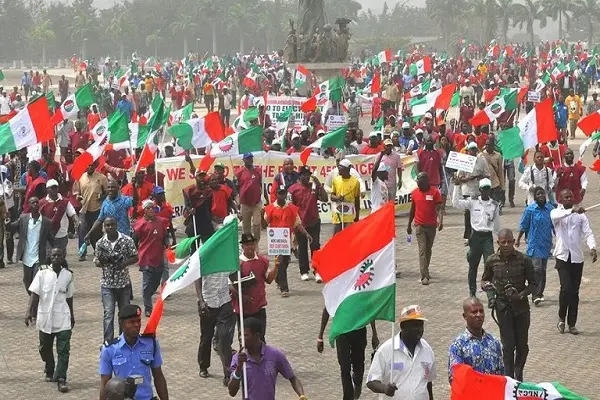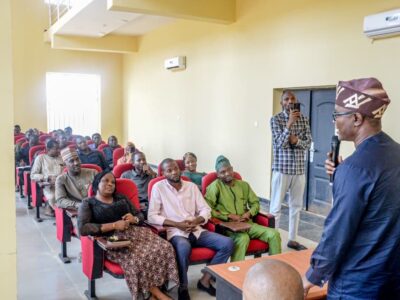Nigeria Labour Congress (NLC) has said it is fully prepared for Wednesday’s nationwide strike, even as all state councils and civil societies have been mobilised.
A top official of the congress told The Guardian on condition of anonymity, ahead of a meeting with civil societies, yesterday, that finishing touches were being put to effective mobilisation. Another meeting is slated for today.
The official, however, said today’s meeting with the government may not hold, alleging that the government is not showing seriousness towards ongoing dialogue.
He said whatever the outcome, “Nigerians are poised because the directive of NLC National Executive Council (NEC) is an irreversible and irrevocable decision to go ahead with the strike and shut down the country in mass protest.”
Asked what could happen if the government reverses pump price of fuel as demanded by NLC, he said: “If the government reverses, then we will agree with all other commitments we made during the negotiation period. We will agree to go back on the social dialogues that produced the Memorandum of Understanding (MoU) we signed earlier. Until the government meets the condition, then we can go back to negotiation and call off the mass protest. But as it is now, there is no going back. NEC has told us we cannot go back.”
Meanwhile, Nigeria Employers’ Consultative Association (NECA), yesterday, said the parlous state of the economy, recent mobilisation for the strike, and civil action by NLC and Trade Union Congress of Nigeria (TUC) were not only worrisome but also call for urgent action by government and other stakeholders.
A statement by the Director General, Adewale-Smatt Oyerinde, urged the government to urgently take steps to ease the economic trauma being faced by workers, other Nigerians and organised businesses.
According to Oyerinde, there is no gainsaying the fact that many businesses have shut down, while many others are on the verge of doing the same.
He noted that this would exacerbate the current unemployment rate and drag many Nigerians further down the poverty line.
He added: “Any strike, threat of mass action or civil disobedience that could potentially disrupt economic activities, especially those in the formal and informal sectors (which could compromise sustainability and job creation), based on economic policies of the government (which are non-employment related) will be counter-productive.
“While organised labour is at liberty to engage with the government on behalf of its members on issues of welfare, as they relate to impacts of any economic policy, sometimes deadlock may hold sway. When that happens, the consequential action by organised labour should not, in any way, hinder anyone from going about their businesses peacefully or cause anyone to be intimidated or harassed.” (Guardian)










Comments